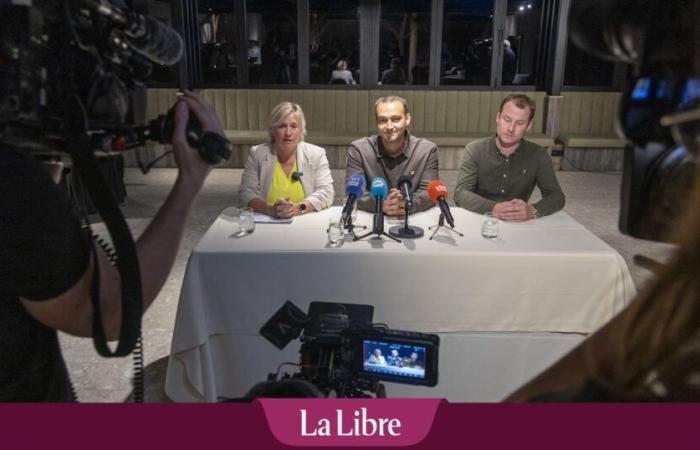
For its part, the N-VA had a good time distancing itself from all this agitation. The nationalist group indicated on Saturday that none of its members appeared among the two lists allied to Vlaams Belang. It’s quite spicy: while the behavior of Bart De Wever’s party has been scrutinized since the elections on the subject of a possible break in the “sanitary cordon”, it is ultimately (former) Christian Democrat and liberal elected officials who have opened the way to Belang. Until this weekend, the political situation in Ranst had flown under the radar of media attention. The VB had obtained “only” three seats out of 25 in the municipal council.
The mayor of Ranst explains why he broke the sanitary cordon and accuses… the N-VA
Little local games…
This opening to Belang is partly a matter of petty political games and local enmities. Bart Goris (PIT list), the new mayor of Ranst, justified his alliance with the extreme right due to… the behavior of the N-VA, the municipality’s second party in the elections. Maintaining poor relations with the nationalists, he accuses them of having forced him to turn to Belang by not responding to his calls. The N-VA denies this version of the facts.
This sequence has sparked conflicting comments. Some observers of Flemish politics believe that the principle of the “sanitary cordon” has been respected since the CD&V and the Open VLD have released their members compromised with the extreme right. This is particularly the case of journalist Hannes Heynderickx, head of the political service of the Nieuwsblad: “Since the CD&V and the Open VLD immediately excluded their members involved in Ranst, the sanitary cordon is not broken but rather reinforced “, he shared on Christian Democrats and Liberalsis an important and hopeful signal “.
How can we explain the breaking of the sanitary cordon in Ranst? “A very banal story of local politics…”
The “cord” has not existed for over 20 years
Political scientist Dave Sinardet (VUB, Faculté Saint-Louis) makes an even more detailed reading of these events. “It all depends on the definition we use of the sanitary cordon, he analyzes. The strict definition evokes a written agreement between all the so-called democratic parties which undertake never to form a coalition with Belang. This formal agreement has not existed for more than twenty years because the text was renewed for the last time before the creation of the N-VA. Geert Bourgeois had signed it, but he was then president of the Volksunie… The N-VA, since its creation, has been opposed to the principle of the cordon santé to avoid allowing the Belang to victimize itself. Even if the N-VA refuses in practice to associate with the extreme right.“
During the legislative elections of November 24, 1991, described as “Black Sunday”, the Vlaams Blok (renamed Vlaams Belang following a judicial conviction for racism) made an unprecedented electoral breakthrough. In response, the five Flemish democratic parties committed to excluding the far right from any political coalition, regardless of the level of power.
Beyond this already old text, the “sanitary cordon” has however survived in its moral dimension and nevertheless imposes itself on the parties in Flanders. “In fact, whether an agreement is signed or not, no party can take action by forming a coalition with Belang, adds Dave Sinardet. However, two lists took this step in Ranst. But these two lists are only local and people who belonged to national parties were excluded by the latter. The cordon was not broken because of great ideological convictions but for reasons of local politics, very trivial and banal: great conflicts between the personalities of the two most important lists (the PIT list and the local N-VA) who fight each other. The sanitary cordon was broken at the local level but not at the national level.”
gullThe cordon was not broken because of great ideological convictions but for reasons of local politics, very trivial and banal.”





